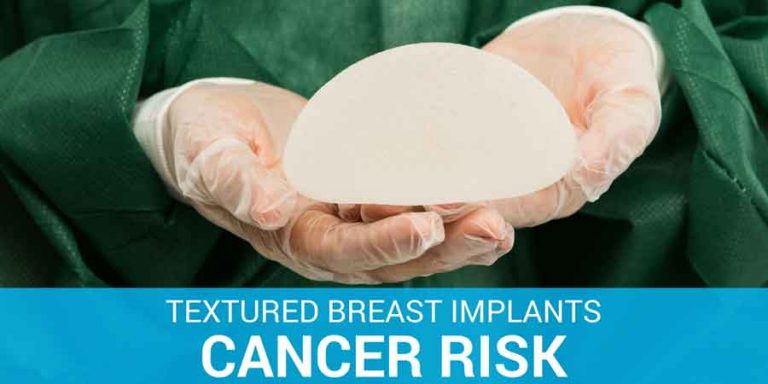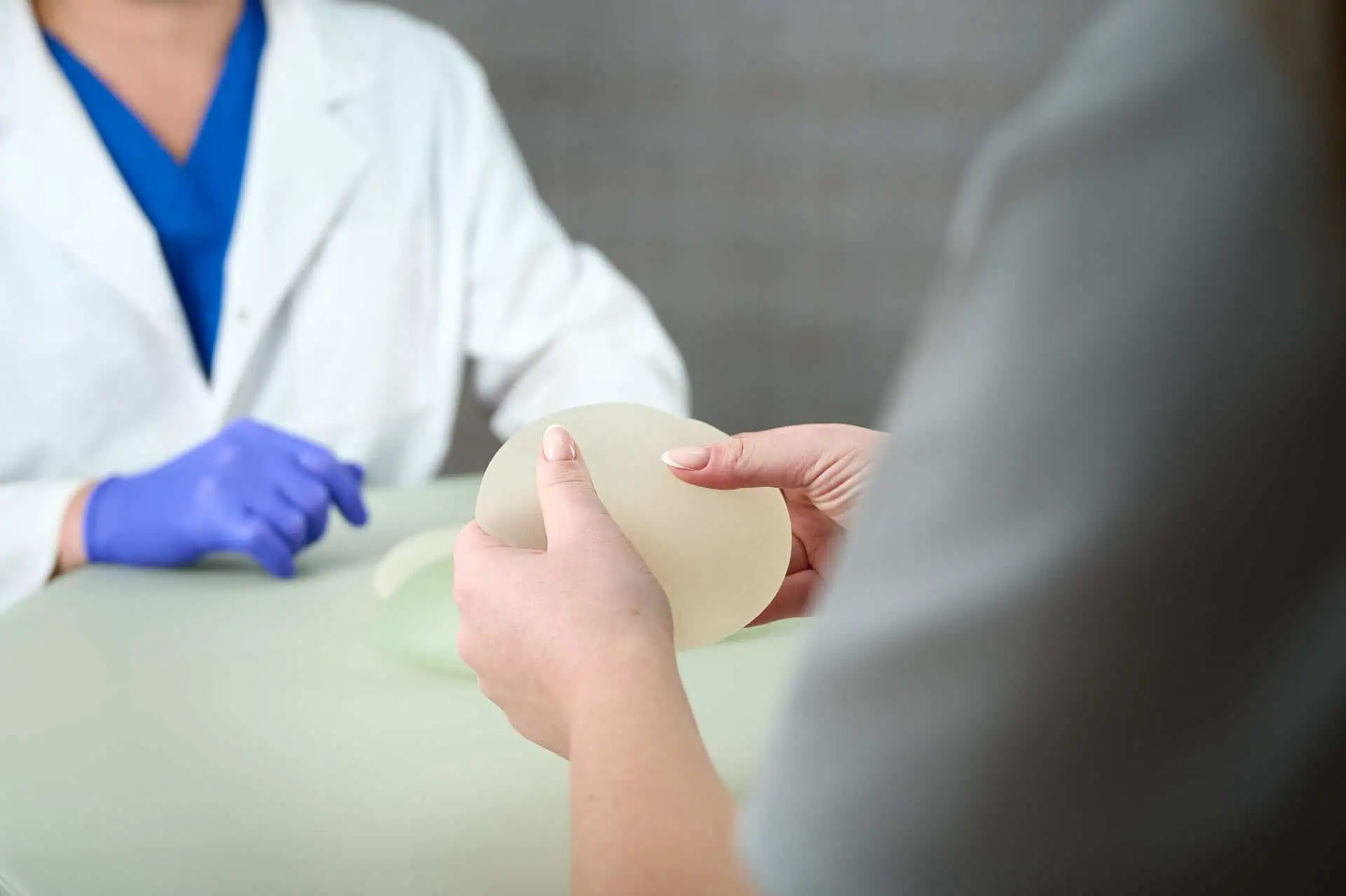Breast Implants Cancer Risk & Complications
- Last Updated: June 12th, 2025

Attorney Jessica Paluch-Hoerman, founder of TruLaw, has over 28 years of experience as a personal injury and mass tort attorney, and previously worked as an international tax attorney at Deloitte. Jessie collaborates with attorneys nationwide — enabling her to share reliable, up-to-date legal information with our readers.
Legally Reviewed
This article has been written and reviewed for legal accuracy and clarity by the team of writers and legal experts at TruLaw and is as accurate as possible. This content should not be taken as legal advice from an attorney. If you would like to learn more about our owner and experienced injury lawyer, Jessie Paluch, you can do so here.
Fact-Checked
TruLaw does everything possible to make sure the information in this article is up to date and accurate. If you need specific legal advice about your case, contact us by using the chat on the bottom of this page. This article should not be taken as advice from an attorney.
Mysterious Breast Implants Cancer Risk Found: Breast Implants Complications Overview
Women are currently asking whether breast implants complications such as a relatively unknown type of cancer — breast implant-associated anaplastic large-cell lymphoma – was avoidable.
BIA-ALCL affects a small portion of more than 10 million women around the world who have received breast implants.
Nearly all the cases of this type of cancer have been connected to breast implants with a textured surface rather than those that are smooth.

It is thought that the texturing may cause inflammation that subsequently leads to cancer.
If detected early, breast implant-associated anaplastic large-cell lymphoma (BIA-ALCL) is considered curable.
It is very important that women implanted with textured breast implants be made aware of this risk.
The U.S. Food and Drug Administration (FDA) first identified a possible link between breast implants and BIA-ALCL in 2011, but very few cases were known to exist at the time so it was not possible to determine exactly what factors might increase the risk.
But in March 2017, the FDA released a statement that this rare type of non-Hodgkin’s lymphoma can develop after a person receives breast implants, based on more than 350 reports of BIA-ALCL and its connection to breast implants.
At that time, nine deaths had been linked to cancer related to the implants.
Table of Contents
Is BIA-ALCL an Avoidable Breast Implants Complication?
BIA-ALCL is not breast cancer. Instead, it is a rare T-cell lymphoma that can develop following breast implants, according to the World Health Organization.
The major symptoms of BIA-ALCL include:
- Persistent swelling or pain in the area of the breast implant
- Fluid collection around the implant
- A noticeable mass or scar capsule around the implant
These symptoms may occur long after the surgical incision has healed, sometimes even years after the implant was originally positioned.
Just two years ago, only about 30 percent of plastic surgeons were discussing cancer risk with their breast implant patients.
However, because most of the confirmed cases of BIA-ALCL have occurred in those with textured implants, the FDA now recommends that health care professionals provide the manufacturer’s labeling as well as any other educational materials to potential breast implant patients before surgery, and discuss with them the risks and benefits associated with the various types of implants.
Research now points to the fact that breast implant complications such as this rare form of cancer should be avoidable.

Managing Attorney & Owner
With over 25 years of legal experience, Jessica Paluch-Hoerman is an Illinois lawyer, a CPA, and a mother of three. She spent the first decade of her career working as an international tax attorney at Deloitte.
In 2009, Jessie co-founded her own law firm with her husband – which has scaled to over 30 employees since its conception.
In 2016, Jessie founded TruLaw, which allows her to collaborate with attorneys and legal experts across the United States on a daily basis. This hypervaluable network of experts is what enables her to share the most reliable, accurate, and up-to-date legal information with our readers!
Additional Breast Implants Lawsuits resources on our website:
Here, at TruLaw, we’re committed to helping victims get the justice they deserve.
Alongside our partner law firms, we have successfully collected over $3 Billion in verdicts and settlements on behalf of injured individuals.
Would you like our help?
At TruLaw, we fiercely combat corporations that endanger individuals’ well-being. If you’ve suffered injuries and believe these well-funded entities should be held accountable, we’re here for you.
With TruLaw, you gain access to successful and seasoned lawyers who maximize your chances of success. Our lawyers invest in you—they do not receive a dime until your lawsuit reaches a successful resolution!
AFFF Lawsuit claims are being filed against manufacturers of aqueous film-forming foam (AFFF), commonly used in firefighting.
Claims allege that companies such as 3M, DuPont, and Tyco Fire Products failed to adequately warn users about the potential dangers of AFFF exposure — including increased risks of various cancers and diseases.
Depo Provera Lawsuit claims are being filed by individuals who allege they developed meningioma (a type of brain tumor) after receiving Depo-Provera birth control injections.
A 2024 study found that women using Depo-Provera for at least 1 year are five times more likely to develop meningioma brain tumors compared to those not using the drug.
Suboxone Tooth Decay Lawsuit claims are being filed against Indivior, the manufacturer of Suboxone, a medication used to treat opioid addiction.
Claims allege that Indivior failed to adequately warn users about the potential dangers of severe tooth decay and dental injuries associated with Suboxone’s sublingual film version.
Social Media Harm Lawsuits are being filed against social media companies for allegedly causing mental health issues in children and teens.
Claims allege that companies like Meta, Google, ByteDance, and Snap designed addictive platforms that led to anxiety, depression, and other mental health issues without adequately warning users or parents.
Transvaginal Mesh Lawsuits are being filed against manufacturers of transvaginal mesh products used to treat pelvic organ prolapse (POP) and stress urinary incontinence (SUI).
Claims allege that companies like Ethicon, C.R. Bard, and Boston Scientific failed to adequately warn about potential dangers — including erosion, pain, and infection.
Bair Hugger Warming Blanket Lawsuits involve claims against 3M — alleging their surgical warming blankets caused severe infections and complications (particularly in hip and knee replacement surgeries).
Plaintiffs claim 3M failed to warn about potential risks — despite knowing about increased risk of deep joint infections since 2011.
Baby Formula NEC Lawsuit claims are being filed against manufacturers of cow’s milk-based baby formula products.
Claims allege that companies like Abbott Laboratories (Similac) and Mead Johnson & Company (Enfamil) failed to warn about the increased risk of necrotizing enterocolitis (NEC) in premature infants.
Here, at TruLaw, we’re committed to helping victims get the justice they deserve.
Alongside our partner law firms, we have successfully collected over $3 Billion in verdicts and settlements on behalf of injured individuals.
Would you like our help?
